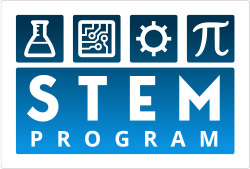Explore Programs
Master of Science in Computer Engineering
 STEM Program
STEM ProgramDEGREE OVERVIEW
The purpose of the graduate program in computer engineering is to facilitate the student's continued professional and scholarly development. The Master of Science (M.S.) program is designed to extend the student's knowledge and emphasize a particular area of concentration.
ABOUT THE PROGRAM
The M.S. in Computer Engineering degree program prepares graduates to work with the latest computer organization technology and computer hardware to gain employment in the ever-growing IT industry or prepare for continuation to a Ph.D. program. The M.S. degree in computer engineering is intended to give those who successfully complete it:
- Knowledge and skills required to design and test embedded systems
- Using microcontrollers, system-on-chip, and FPGA devices
- Understanding multi-threaded programming on bare-metal, custom real-time operating systems, and embedded Linux systems
- Implementation of IP stacks for computer networking
- Network and wireless protocol development for Internet of Things devices
- Design of real-time operating systems
- Implementation of RISC processors in FPGA devices
- Design of advanced digital logic systems
- Analysis and design of microprocessor systems
- Control of systems with electromechanical actuators and sensors
Candidate selection for the Master of Science in Computer Engineering program is a very competitive process, considering GPA, performance in computer-related classes, TOEFL or IELTS (for non-English-speaking candidates), GRE, and reputation of the university where they completed their undergraduate studies. Relevant recent work experience is considered in cases where educational credentials are dated or not in the computer science field.
LEARN MORE
- Admissions requirements
- Degree curriculum (scroll down to course list)
- Degree information in the University Catalog
- Faculty in Computer Science and Engineering
CAREER OPPORTUNITIES
Students in the M.S. in Computer Engineering program gain the knowledge and skills required to design and test embedded systems using microcontrollers, system-on-chip, and FPGA devices. Topics include multi-threaded programming on bare-metal, custom real-time operating systems, and embedded Linux systems; implementation of IP stacks for computer networking; network and wireless protocol development for Internet of Things devices; design of real-time operating systems; implementation of RISC processors in FPGA devices; design of advanced digital logic systems; analysis and design of microprocessor systems; and control of systems with electromechanical actuators and sensors.
DEGREE OPTIONS
Students may select one or both of the following graduate tracks offered by the Computer Science and Engineering Department within the three thesis options provided below:
- Computer Architecture and Systems
- Embedded Systems
30-Hour Thesis
Student will select one of the two concentration tracks above and complete eight courses (combination of core computer engineering classes such as computer organization, digital logic, digital signal processing, circuits, and others) plus a number of 5000- and 6000-level courses from their selected track. Additionally, they will complete a thesis in their selected area. The M.S. thesis will be administered by a committee of at least three members (supervisor, plus two non-supervising members).
30-Hour Non-Thesis
This option is for M.S. students who are not interested in completing a thesis, but have a very strong academic background in computer science. To qualify for this degree, candidates must have a GRE of 305 or higher plus a B.S. degree in computer engineering, electrical engineering, or computer science with no deficiency classes. Students in this option will select 10 courses from a list of core classes and select both tracks above.
36-Hour Non-Thesis
This option is for M.S. students who are not interested in completing a thesis and have an average academic background in computer science. To qualify for this degree, a student must have earned a B.S. degree in computer science, computer engineering, electrical engineering, or other STEM-related fields. Students in this option will select 12 courses from a list of core classes and select both tracks above.
GET STARTED
Take the next step toward investing in yourself by learning more about our Computer Engineering - Master's (M.S.) program.
Apply Today
If you're ready, so are we. The next step is to apply. Applying for admission is easy, and we're here to work with you every step of the way.
PROGRAM CONTACT
Name:
Ginger Dickens
Email:
CSEGradAdvising@uta.edu
Learn More
Computer Engineering - Master's (M.S.)
Learn more about this program on the Department or College website.
